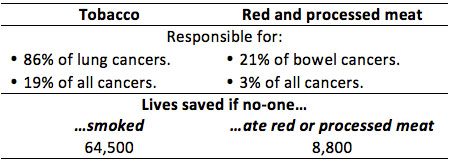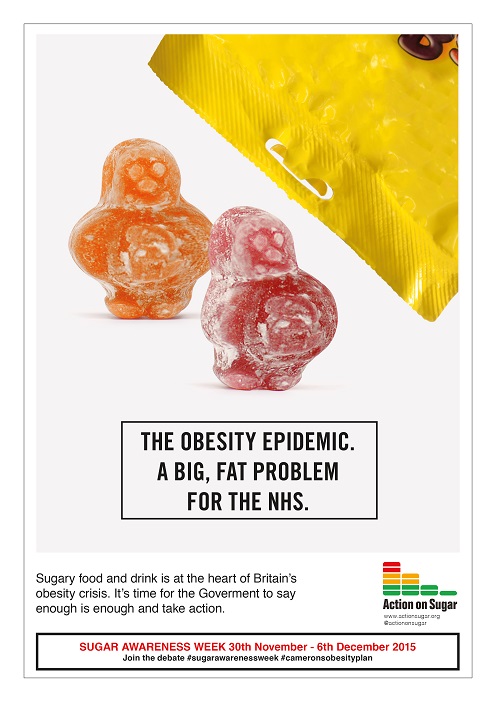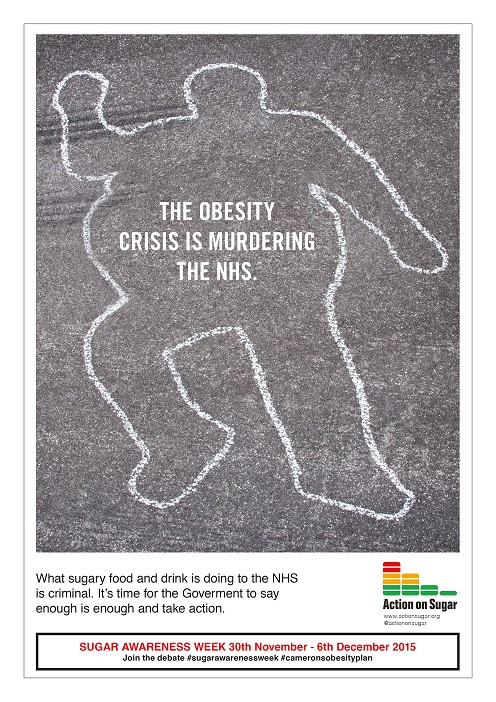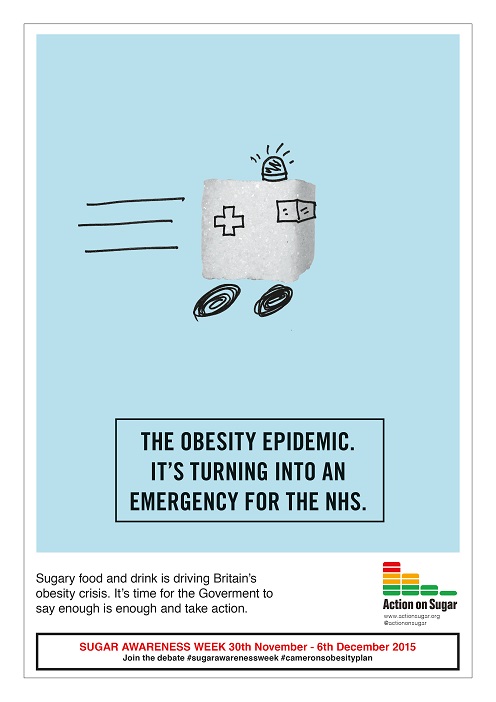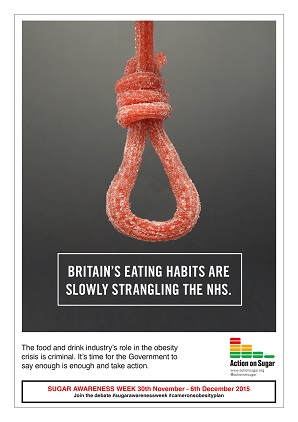
by Nutrilicious | Jan 14, 2016 | Health Awareness Events, Hot Topics in nutrition
The National Obesity Forum has called for a tax on sugary drinks this week at more than double the level recommended by Public Health England, in a manifesto to improve public health launched to mark the beginning of its JanUary campaign (formerly National Obesity Awareness Week). The manifesto was presented at the All-party Parliamentary Group on Adult and Childhood obesity at the House of Commons re-launched today which we attended.
The Forum, which comprises of practicing healthcare professionals and clinicians, has claimed that only a 50 percent tax on sugary drinks will prompt a change in consumer behaviour. It has, however, rejected calls for a tax on food products, claiming such a move would unfairly penalise low-income families – instead insisting the Government should abandon the Responsibility Deal and mandate the reformulation of foods to reduce levels of fats, sugars and salts.
Other recommendations in the Forum’s manifesto, include GPs routinely measuring the weight and BMI of young children, including water in Public Health England’s relaunched ‘eat well’ plate, banning fast food outlets near schools, and insisting on a watershed ban for junk food advertising.
The Forum has also called for the expansion of specialist non-surgical weight management treatment services across the UK, and improved information on local weight management resources and services for GPs and nurses.
Professor David Haslam, Chairman of the National Obesity Forum, said: “The measures we’ve proposed could be relatively easily implemented with substantial benefits to public health. There have been repeated warnings about the health of the population, but we remain in the midst of an obesity epidemic. Tackling this problem requires immediate and concerted action. We need to improve and extend the treatment services available. We also need to educate and, where appropriate, change consumer behaviour.” “Anything less than a 50 percent tax on sugary drinks will be insufficient as a disincentive to consumers. We don’t currently support taxing food products – this would be unfair to particularly low-income families. But sugary drinks have no place in anyone’s diet.”
Unfortunately this meeting was very poorly attended by MPs. Let’s hope that this is not a sign of things to come with Cameron’s much anticipated childhood obesity strategy.
The National Obesity Forum is encouraging members of the public to make healthy New Year’s Resolutions and participate in a sugar reduction challenge as part of the JanUary campaign.
www.jan-u-ary.co.uk
www.jan-u-ary.co.uk/wp-content/uploads/2016/01/NOF-manifesto-v4-compressed.pdf

by Nutrilicious | Jan 14, 2016 | Health Awareness Events
We enjoyed attending Parliament yesterday. However, it was not the usual kind of meeting! Originally set up to test MPs knowledge of healthy eating, hydration and physical activity against primary school pupils in the House of Common. However, MPs not wishing to be outdone by their juniors, decided instead to head each of the primary school teams.
MPs including Steve Pound, Carol Monaghan and Rupa Huq joined teams from Berrymede Junior School, Horsenden Primary and Montpelier Primary in the quiz, which was chaired by former Blue Peter presenter Helen Skelton. The quiz was based on the Eat Like A Champ programme, a Change4Life partner scheme designed to promote healthy diet and exercise amongst primary schools pupils aged nine and 10 years. Ms Skelton has previously completed the Namibia ultra-marathon, kayaked the length of the Amazon, and to the South Pole.
The quiz was part of the JanUary campaign, which is led by the National Obesity Forum to encourage healthy choices amongst the public and tackle a growing obesity crisis. Participants faced six rounds of lively questions with each team of school pupils also asked to deliver a presentation on why healthy living is important.
The quiz was won by Montpelier Primary on a tie-break round.
The competitive nature of both MPs and pupils soon came to the fore with speed-lightning pressing of their buzzers before Helen Skelton had a chance to finish the questions. Disputing amongst teams also ensued forcing Helen Skelton to make some hard marking decisions. Questions focused predominantly on the food groups from the Eatwell Plate. The most enchanting part of the day, came when representatives from each school braved the audience to present their prepared speeches on the importance of exercise and physical activity. The pupils’ motivation, enthusiasm and level of knowledge was a true inspiration to all.
The Eat Like A Champ programme is run by Danone and was developed in collaboration with the British Nutrition Foundation.
Professor David Haslam, Chairman of the National Obesity Forum, said:
“Of course this a bit of fun, but it’s making a very important point. Namely that we need to ensure our children are introduced to good nutrition and hydration habits at a young age. We know from the National Child Measurement Programme that the number of overweight and obese young people remains high, and that this is a particular problem in deprived areas. Many children are sedentary and consume large quantities of poor quality foods high in salt, sugar and trans-fats.
“This must be addressed if we’re to avoid storing up problems for the future, and condemning children to poor health outcomes. Initiatives like Eat Like A Champ are absolutely vital in teaching good habits at a young age.”
Adam Grant, Managing Director of Danone Ltd, said:
“We are extremely proud of Eat Like A Champ, which since 2010 has inspired 100,000 children across the country to adopt the healthy choices of champions they admire. Independent research has shown Eat Like A Champ has a positive impact, and we are delighted to be working with partners such as the National Obesity Forum and the Mayor of London’s Healthy Schools initiative to encourage even more schools to take part.”
The National Obesity Forum and supporters of JanUary are encouraging the pubic to commit to healthy New Year’s Resolutions throughout the campaign (11-17 January).
www.jan-u-ary.co.uk
www.eatlikeachamp.co.uk
www.nationalobesityforum.org.uk

by Nutrilicious | Dec 11, 2015 | Food category comment
The first-meal of the day is changing. Long ago, bacon-and-eggs were popular (and they still are for those anxious about carbohydrates, or for those staying in hotels where others will wash the greasy pans). Then there were periods of battle between toast-and-something or breakfast cereals and milk. Ready-to-eat (RTE) cereals are still the most popular start to the day, but sales are described as, ‘soggy’1 as items that are more portable gain ground: breakfast drinks and biscuits can be orally crammed while running late to the station or school. Or perhaps these on-the-run breakfast products are needed to balance the portable communication bars so constantly held in the other hand?
Other themes have put pressure on manufacturers of RTE cereals. Demands for salt and sugar reduction, demands for gluten-free variants, and shifts in consumer perceptions that carbohydrates are less healthy, and that more proteins is always a good thing.
But most-recent data report that RTE cereals contribute only 8% of free sugars intakes to the diets of children under 10 years of age, and less than 6% to the diets of teenagers2. And what appears extraordinary, is the view of some consumers that the three minutes it may take to eat cereal and milk in the morning, is two minutes too long.
But are these shifts in breakfast patterns a threat to the nutrient quality of diets, which may be a particular issue for the diets of children and teenagers? There is a near-constancy of data supporting the benefits of regularly including nutrient-enriched cereals into diets. Child and adolescent RTE cereal eaters appear be at lower risk of being overweight3,4. Also, breakfast cereal eating is associated with higher intakes of some micronutrients. In a study of more than 1200 European 12-17 year olds4, the RTE cereal-eating teens had higher intakes of various B vitamins, vitamin D, calcium and potassium. A review of various commonly-consumed breakfast cereals5 confirms their contributions to a wide variety of micronutrients, as well a typically contributing to intakes of fibre, whole grain and protein.
Not eating breakfast cereals does not mean not eating these nutrients: there are plenty of other food sources of course. But because they are such a rich and reliable source, it just means that regular intakes are a quick and easy short-cut to the assurance that children and teens have an early-morning head start to better diets. RTE cereal eating may be especially beneficial in the diets of those trying to limit energy6, and in those on low incomes, where there may be a lower variety of other nutrient-dense foods7.
It will be interesting to watch and monitor the national diet and nutrition surveys and see how changing breakfast choices may impact on the nutrient intakes of different groups within the population. In the meantime the slightly unexplained tight-squeeze of time in the morning certainly needs to be battled-against. Some planning of a calm breakfast, the night-before, is one way to encourage the interest of children and teens in sitting down to a few spoons of cereal. The technique of do-as-I-do must also be borne in mind by advocating parents. Lastly, some concessions to variety of products and comforting aura’s helps (suggestion: breakfast Swedish-style with candles and the strict rule of no-electronics at the table!).
Information sources:
- Financial Times Oct 3 2014. Daneshkhu S: Cereal sales go soggy as breakfast shrinks. www.FT.com (accessed 9.11.15)
- Bates B et al (2014) National Diet and Nutrition Survey (NDNS) Result for year 1 to year 4 (combined) of the rolling programme 2008-2012. PHE & FSA, London
- De la Hunty A, Gibson S, Ashwell M (2013) Does regular breakfast cereal consumption help children and adolescents stay slimmer? A systematic review and meta-analysis. Obesity Facts 6, 1, 70-85
- Michels N, De Henauw S, Breidenassel C et al (2015) European adolescent ready-to-eat cereal (RTEC) consumers have a healthier dietary intake and body composition compared to non-RTEC consumers
- Ruxton C (2014) The Role of Breakfast Cereals in Improving Public Health. Complete Nutrition, 14, 3, 69-71
- Reeves S (2015) The Role of Breakfast Cereal in Contributing to Nutrient Shortfalls Associated with Low Calorie Diets. Complete Nutrition, 15, 3, 59-61
- Holmer BA, Kaffa N, Campbell K & Sanders TAB (2012) The contribution of breakfast cereals to the nutritional intake of the materially deprived UK population. European Journal of Clinical Nutrition, 66, 10-17

by Nutrilicious | Dec 11, 2015 | Media in context, The Nation’s Health
The media loves a good headline, and the World Health Organisation (WHO) and the International Agency for Research on Cancer (IARC) provided the perfect story on October 26th – processed meat causes cancer. So is bacon the new tobacco?
The review of over 800 studies found conclusive evidence that processed meats cause colorectal cancer, placing them into the AICR’s top category for carcinogenic substances alongside tobacco. Strong associations were also found for stomach cancer. Red meat was classified as ‘probably causing’ colorectal cancer with the working group unable to exclude all other confounding factors from the data available.
So, are sausages and bacon as bad for us as smoking? Comparing the lowest with the highest consumers, the evidence concluded that for every 50g of processed meat consumed a day, the relative risk of colorectal cancer increased by 18% and for every 100g of red meat consumed daily, the risk increased by 17%.
However, when the findings are put into perspective, it is clear that the level of damage caused by smoking is far greater. The IARC, highlights that their findings and risk categories reflect how strong the scientific evidence is for a substance to cause cancer rather than how many incidences of cancer it will actually cause.
Cancer Research UK’s (CRUK) blog on this topic puts things into perspective:
- 61 out of 1,000 people are expected to develop bowel cancer.
- For the lowest meat consumers, this risk will be lower, at around 56 per 1,000.
- For processed meat consumers with a 17% increased relative risk, the incidence would therefore be 66 per 1,000, i.e. 10 more cases per 1,000 for processed vs. non-processed meat consumers.
CRUK went on to put the risk in more real terms.
It’s not about the quality of the meat – it’s all in the cooking or processing technique! The mechanism by which red meat and processed meat cause cancer is still being investigated. However, the current evidence points towards the method of processing and cooking as key drivers for production of carcinogens and there seems little impact with regard to the quality or cut of meat. Processed meats include ancient traditions of smoking, curing and salting as well as any other process to enhance the flavour or shelf life of meat. Included in this category are ham, sausages, bacon, tinned meat and sausages. It is thought that the processing results in the formation of carcinogens within the meat such as N-nitroso-compounds (NOC) and polycyclic aromatic hydrocarbons (PAH).
Get the slow cooker out to help reduce cancer risk! For red meat, which includes pork, beef, lamb and goat, it is the cooking of the meat that seems to generate carcinogenic compounds such as heterocyclic aromatic amines (HAA) and PAH. And these carcinogens like higher temperatures such as those produced during pan frying, grilling and barbecuing.
So how much is too much? On this, there is less clarity as the evidence did not indicate to a ‘safe’ level. CRUK recommends following the current guidelines of no more than 70g red meat per day, avoid processed meat and to use more plant-based protein foods to part or fully replace meat dishes.
How much processed and red meat is the UK currently eating? According to the NDNS data, men eat an average of 86g per day and women 56g. However, there is a significant range from zero for non-meat eaters up to 219g daily for some men. Focusing on the higher processed meat consumers and identifying effective behaviour change strategies seems to be key.
What should our advice be to consumers? Although the Atkin’s supporters may be a little displeased, the average consumer and the press cannot blame scientists and health professionals for always changing their minds. The advice is the same as always…a varied balanced diet, cutting down on red meat and trying to avoid processed meat.
References
- Chan DSM, Lau R, Aune D et al. Red and processed meat and colorectal cancer incidence: meta-analysis of prospective studies. PLoS ONE 6(6): e20456. doi:10.1371/journal.pone.0020456. http://journals.plos.org/plosone/article?id=10.1371/journal.pone.0020456 accessed 5th Nov.
- Bouvard V, Loomis D, Guyton KZ et al. (International Agency for Research on Cancer Monograph Working Group). Carcinogenicity of consumption of red and processed meat. Lancet Oncol. 2015 Oct 23. pii: S1470-2045(15)00444-1. doi: 10.1016/S1470-2045(15)00444-1. [Epub ahead of print] http://www.thelancet.com/journals/lanonc/article/PIIS1470-2045(15)00444-1/abstract Accessed 5th November.
- Dunlop C. Cancer Research UK Science Blog. Processed meat and cancer – what you need to know. 26 October 2015. http://scienceblog.cancerresearchuk.org/2015/10/26/processed-meat-and-cancer-what-you-need-to-know/ Accessed 5th November.

by Nutrilicious | Dec 3, 2015 | Thoughts
This first Sugar Awareness Week, being run by action on sugar, included a reception at the House of Commons yesterday, Wednesday 2nd December, hosted by Geraint Davies MP. The reception was attended by over 100 MPs, NGOs and members of the food industry, all sharing a common interest in sugar reduction, where we were delighted to be invited.
Speeches were made by Geraint Davies MP, the Labour Co-operative Member of Parliament for Swansea West, Dr Alison Tedstone, Director of Diet & Obesity, Public Health England, Tim Smith, Group Quality Director, TESCO, Andrew Opie, Director of Food & Sustainability, British Retail Consortium, and Chairman of Action on Sugar, Professor Graham MacGregor.
Several organisations were in attendance with exhibition stands including the Co-op, Sainsbury’s, Waitrose, Change 4 Life, and Children’s Health Fund amongst others.
The key focus was on the obesity epidemic, the related NHS crisis and action on sugars newly proposed comprehensive approach to preventing obesity and type 2 diabetes in the UK. This has been summarised in their six evidence-based essential actions. This plan has already been submitted to Cameron boldly calling it “Cameron’s plan”. In the words of Professor Graham MacGregor, it is in anticipation that Cameron will have the guts to incorporate it into his forthcoming obesity strategy.
The six evidence-based essential actions:
- Reformulation of sugar and fat in foods and drinks*.
- 50% reduction in sugar content within the next 5 years, starting immediately with sugar-sweetened soft drinks.
- 20% reduction in fat, especially saturated fat, within the next 5 years.
- Stop promotions of unhealthy food & drink*.
- Prevent all types of marketing of unhealthy food and drink to children and adolescents.
- A 20% duty on all sugar-sweetened soft drinks and confectionary, to escalate thereafter if companies do not comply to reformulation targets.
- All public sector food must meet strict guidelines*.
- Uniform colour-coded labelling to be present on all foods for retail and out-of-home, with stricter criteria for high salt, sugars, fat and calories.* (NB sugars as free sugars not total sugars)
* Actions 1, 2, 5 and 6 can only be done by an independent agency e.g. the previous Food Standards Agency or similar. It is action on sugars strong belief that The Department of Health, with the Responsibility Deal, have failed both in its salt and calorie reduction policies. They therefore deem it essential to have an independent (but government-funded) agency who can carry out implementation, thorough monitoring with regulation and enforcement if necessary. Further details on these actions can be found at the web link below.
The adverts highlighted below were developed for this awareness week.




Some key points made by speakers:
Dr Alison Tedstone, Director of Diet & Obesity, Public Health England
- The UK is the first country to recommend no more than 5% of energy as sugar.
- Today, 30% children have tooth decay – we have shameful health stats including obesity which urgently needs to be addressed.
- Part of all this means that sugary drinks should form no part of a children’s diet.
- PHE has carefully analysed the data to determine what action the UK needs to take to reduce sugar intake to come out with their sugar reduction report – evidence for action. While Dr Tedstone highlighted that multiple actions need to be taken she focused on the urgent need to change advertising regulations:
- 40% of the food we buy in the UK is bought on promotion. It’s not neutral. It’s making families buy 1/5th more than they would otherwise buy. It impacts on calorie intake and the balanced diet. Promotions of unhealthy foods should stop.
- Advertising of unhealthy foods in all channels is not neutral. It affects dietary balance and drives towards unhealthy and excessive intakes.
- PHE have advised on the adaptive model with regards to sweeteners recognising that some people will not be able to reduce their likeness for sweet drastically.
Tim Smith, Group Quality Director, TESCO
- TESCOs challenge is to make it easier for the shopper to eat healthier but not compromise on taste.
- Their customers don’t want to be told what to do.
- Small achievable changes are the way to go.
- TESCO has achieved a lot already.
- There are 300,000 employees at TESCO who are taking part in driving healthy eating within.
- They run the Eat Happy Project where 1 million kids have been actively involved.
- The cornerstone has been reformulation.
- 4,000 products over 4 years have been reformulated where the average TESCO customer is consuming 20% less sugar than they were 4 years ago.
- Technical problems are much less than with salt. It’s more about needing the will but we have a business wide commitment on this.
- TESCO are neutral on sugar tax. They will leave it to others to decide.
Andrew Opie, Director of Food and Sustainability, British Retail Consortium
- Retail has achieved a lot already in terms of reformulation. The way has been paved and there continues to be a big focus on sugar alongside fat and salt. There is a lot of experience amongst members.
- We now need reformulation targets to be mandatory. There needs to be a universal adoption. Retailers have led the way in the past and not all in industry have followed. So the bolder companies have sometimes been penalised. This applies critically to key categories that contribute excessively to children’s diets.
Prof Graham MacGregor, Chairman of Action on Sugar
- Action on sugar was set up two years ago and has received a lot of support.
- One year ago they presented a plan to Jeremy Hunt who did nothing.
- This time around Cameron needs to come out with a strong plan to reduce obesity and diabetes.
- Reformulation is key in their recommendations.
- Action on sugar also recommends reducing the sweetness of artificial products to get the population used to less sugar.
- Fat is also highlighted as also important. We need to reduce saturated fat intake and as part of this reduce use of palm oil.
- Action on sugar wants a sugar tax but recognises that in itself, it may not be effective. The income generation and the halo effect however may be important.
In the Q&A session there was some discussion about the call to put teaspoons of sugar on pack. PHE response was that there needed to be more research into how this would be received and utilised. Some suggested that this would purely be for the worried well and therefore not worth the cost.
It was extremely helpful to attend the reception, hear the talks and share experiences with all concerned about sugar intake. It’s been useful to consider action on sugar and public health England’s plans together. We are already incorporating new actions into the various sugar reduction projects that we are involved in. It’s certainly challenging yet very exciting times for both public health and business where creativity and credibility will be key. In the meantime we keenly await “Cameron’s plan” and hopefully in early 2016.
http://www.actiononsugar.org/sugar-awareness-week/Sugar%20Awareness%20Week%202015/167198.html
https://www.gov.uk/government/publications/sugar-reduction-from-evidence-into-action





